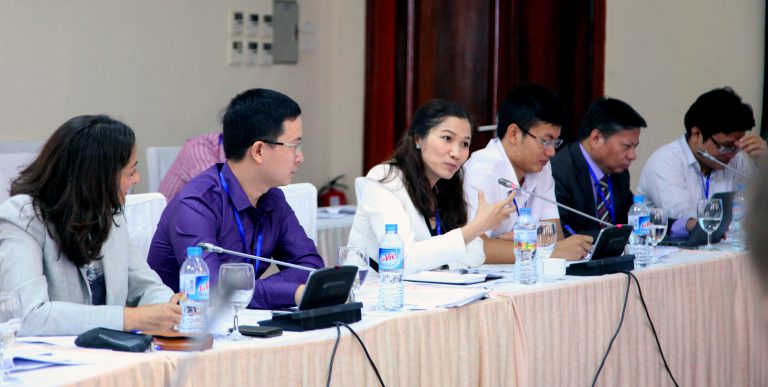
The Rule of Law in Asia: Vietnam and the TPP
In the week following the visit of President Obama to Vietnam I had the pleasure of participating in a 2-day workshop in Hanoi convened by the Mansfield Foundation and attended by American and Vietnamese Government officials, legal practitioners and academics – hosted by the University of Economics and Business, Vietnam National University (VNU) – on The Rule of Law in Asia: Vietnam and the TPP. On behalf of the University of Hong Kong Professor Anselmo Reyes addressed the workshop on principles of investor dispute resolution, and I addressed the workshop on the challenges facing Vietnam as it seeks to comply with the labour reform mandate imposed upon all parties to the TPP, as well as the separate commitments it has made under the Bilateral Implementation Plan entered into between the U.S. and Vietnam.
Labour Rights under the TPP
Vietnam’ s economy stands to be the biggest beneficiary of the TPP in terms of enhanced trade and flows of foreign direct investment. Historically, free trade agreements (FTAs) have often proved a double-edged sword for workers in developing countries. This is particularly so in Export Processing Zones (EPZs) where many developing nations have agreed to ‘waive’ their domestic labour laws in order to keep labour costs down and labour disruptions to a minimum. FTAs of this nature have proliferated in recent decades despite the fact that under International Human Rights law it is not strictly possible for a State to ‘waive’ the human rights of its citizens. FTAs that facilitate cheap labour and minimal labour regulations haven’t only harmed workers in developing countries, but are perceived to have contributed to the loss of many jobs in developed nations such as the U.S. This is perhaps why, to date, neither Donald Trump nor Hillary Clinton have publicly supported TPP as part of their political campaigns.
However, the TPP for all its detractors (myself included with respect to its Intellectual Property provisions insofar as they affect access to medicines) is a very different breed of FTA. It requires all parties to adopt and maintain in their laws and practices the fundamental labour rights recognised by the International Labour Organisation (ILO), namely: freedom of assocation, including the right to collective bargaining; the elimination of all forms of forced labour; the abolition of child labour and a prohibition on the worst forms of child labour; and the elimination of discrimination. Parties to the TPP also commit to implement and enforce acceptable conditions of work with respect to minimum wage, hours of work and occupational health and safety, and most strikingly are prohibited from derogating or waiving laws that implement these rights for purposes of promoting trade or investment.
For Vietnam, TPP marks a pivotal departure in terms of labour rights and freedoms afforded to its workforce, the most significant of which from a political perspective being the right to form independent unions. It is hoped that these labour reforms will prevent Vietnam from going down the road of nations like Bangladesh whose economy has seen dramatic growth in the past decade, but at a problematic price in terms of the conditions that many of its workers are forced to endure in EPZs.
In this way TPP promises to prevent a ‘race to the bottom’ for the rights of workers. Whether or not this promise will be realised will depend upon effective enforcement mechanisms, which in turn ultimately depends upon the extent to which Vietnam is able to develop its institutional capacity to operate with standards that conform to a respect for the rule of law.


- Post Tags:
- Vietnam
- Posted In:
- Employment Law
Farzana Aslam
Director and Principal Consultant at Kintillo, Farzana has over two decades of professional experience including as an employment law Barrister (3 Hare Court, Middle Temple, London), in-house employment Counsel (Goldman Sachs, Asia-Pacific and Japan), Principal Lecturer, Law Faculty, the University of Hong Kong (Professional Ethics, Civil Litigation, Employment Law, Business and Human Rights), and Chair of Justice Centre Hong Kong.
All stories by: Farzana Aslam